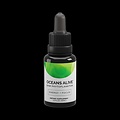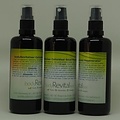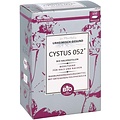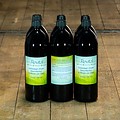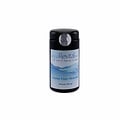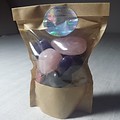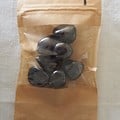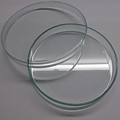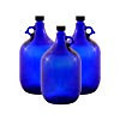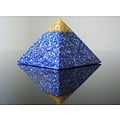Cellular oxygenation by means of minerals
Do Your cells need oxygen? Yes, DEFINITELY, A LOT and PERMANENTLY.
They can go for weeks without food, a few days without water, but after a few minutes without oxygen we would die!
Oxygen is the most essential nutrient in Your body! Without an uninterrupted and clean supply of oxygen, our internal organs weaken, become ill and age quickly.
Did You know that the brain needs more oxygen than any other organ in Your body? When the brain doesn't get enough oxygen, it results in sluggish thinking, negativity, depression, increased irritability and even a decline in your vision and hearing. Many older people even become senile due to a permanent lack of oxygen.
Oxygen deprivation is still seen as one of the most important causes of cancer. Results in studies show that cells deprived of oxygen turn into cancer cells.
Oxygen deprivation has also been found to be a major cause of heart disease and strokes.
Think of Your body as a fire. A fire needs fuel like wood, but it needs oxygen to keep the fire going. Your cells need optimal factors to function optimally and this includes an abundant supply of oxygen in close proximity to your cells, which need oxygen for the metabolic process. Cells are built to burn glucose, so they need oxygen - constantly - to keep the process going.
The metabolic process produces waste that prevents oxygen from reaching the cell. When this happens, the cell does not function optimally and if this condition persists, diseases develop. In addition, these diseased cells multiply in their environment and this increases the waste problem.
Increasing the amount of oxygen can only have a positive effect on Your body. Exercise, eating green, yellow and red vegetables and dark-colored fruits will increase the amount of oxygen in Your body.
Another very good way to prevent waste and allow oxygen to flow freely to Your cells is to drink lots of water.
Scientists have discovered that 10,000 years ago the atmosphere consisted of 38% oxygen. Nowadays it is only 21% and it is getting less and less due to air pollution and industrialization. We simply don't get as much oxygen as was intended for our human bodies!
Activated oxygen combines 3 oxygen molecules, also known as O3. Normal oxygen becomes activated oxygen through an electrical charge, e.g. charged aquaRevitaliser Ionized Mineral Extract. Activated oxygen attacks unwanted substances and organisms (bacteria, soil/mud and organic chemicals), leaving normal oxygen (O2) as a residual product.
Activated oxygen burns "invisible" pollutants, making them "visible" and insoluble in the water. These dissolved pollutants are then bound by minerals and sink to the bottom of the tank as a visible mass and can thus be filtered out. Any carbon monoxide gas produced during oxidation escapes into the air.
| Charged aquaRevitaliser Ionised Mineral Extract contains at least 50 charged mineral elements, such as calcium, magnesium and manganese. When these minerals are combined with water, they act as a catalyst for the oxygen activation process, which has a very high efficiency. |
The history of activated oxygen.
In 1888 it was discovered that high-current electricity (like lightning) produces hydrogen peroxide. When this high-current electricity is discharged via the oxygen, ozone is formed. When the oxygen layer in the Earth's atmosphere is penetrated by UV light from the sun, it transforms this oxygen into ozone. This is a blue gas, which explains why the sky looks blue when it is clear and clean.
In 1967, a doctor was researching oxygen as a therapy. He developed a process in which the oxygen content of the water was increased to 60mg per litre. Until then, only up to 10mg/litre had been achieved. Electric charge was used in the process. This research showed that oxygen-rich water reduces nitrates, stress and pollutants in the body.
Furthermore, a double-blind study demonstrated that oxygen-rich water causes a significant improvement in the blood and strengthens the immune system.
It was found that oxygen in drinking water is consumed in the stomach and intestines by diffusion and enters the bloodstream through the portal vein. The oxygen in drinking water works in the same way as the oxygen contained in the air.
| Symptoms of oxygen deficiency in our body |
| Fatigue |
Demotivation |
Obesity |
Candida |
| High Blood Pressure |
Heavy Legs |
Varicose Veins |
Sinusitis |
| Immunodeficiency |
Anemia |
Flatulence / Diarrhea |
Sore Muscles |
| Allergies |
Edema |
Memory Loss |
Indigestion |
| Stomach Acid Complaints |
Bacterial/Viral Infections |
Depression |
Tumors |
| Chronic Fatigue |
Chronische Irritations |
Bronchitis |
Cancer |
| Susceptibility To Colds, Flu And Viral Infections |
The medical symptoms mentioned above often begin with a general feeling of weakness. Over time, it then develops into one illness or another. Cells with a lack of oxygen send out "alarm messages", which are "interpreted" by the nervous system with feelings of discomfort and/or anxiety. Very often, however, these signals are ignored, which worsens the situation and the problem grows into a more or less serious illness because they are misinterpreted.
Ninety percent of our energy is generated by oxygen. Our bodies use a lot of oxygen to rid themselves of waste and harmful substances.
| Positive effects of adequate amounts of oxygen in our body |
| Balanced blood pressure |
Complete detoxification |
Improvement of cell metabolism |
Balanced stomach acid levels |
| Healthy immune system |
Rapid healing of injuries |
Decrease in allergy symptoms |
Decrease in (bronchial) asthma |
| More resistant to viral diseases |
More resistant to poisoning |
Higher Efficiency |
Increased performance |
The relationship between oxygen deficiency and illness can therefore be established. The more oxygen we have available in our body, the more energy we can produce. Scientists have discovered that the human body was designed for a 50% higher concentration of oxygen than is available today. With this knowledge, we should strive to get a higher concentration of oxygen into our bodies.
Stress leads to a lack of oxygen in the body!
| Types of stress in our body |
| Stress caused by poisoning |
Poisoning comes from drinking contaminated water, breathing polluted air and eating unhealthy food.
The body needs additional oxygen to permanently eliminate this stress. |
| Stress caused by physical strain |
This type of stress reduces circulation, which in turn impedes the delivery of oxygen to the cells and tissues. |
| Infections |
These consume "vast amounts" of oxygen to fight bacteria, fungi and viruses. Pharmaceutical chemicals make this fight more difficult by also consuming oxygen to be eliminated from the body. |
| Emotional stress |
Panic, fright, fear, malice, etc., cause the increased production of adrenaline, which in turn consumes oxygen. |
Furthermore, a chronically over-acidified system also causes oxygen reserves to be depleted. Various doctors assume that a chronically over-acidified system consumes even more oxygen, so that you end up in a vicious circle of poisoning and further depletion of oxygen reserves, which can lead to serious illnesses.
Cancer has only one main cause! Cellular respiration has to make do with lower quality oxygen instead of normal oxygen!














